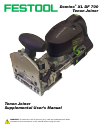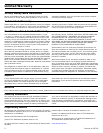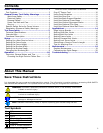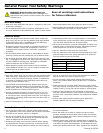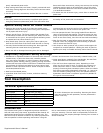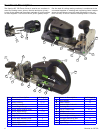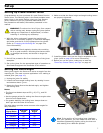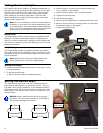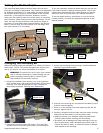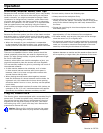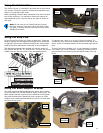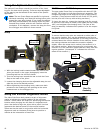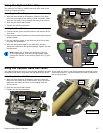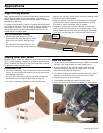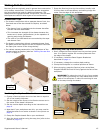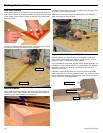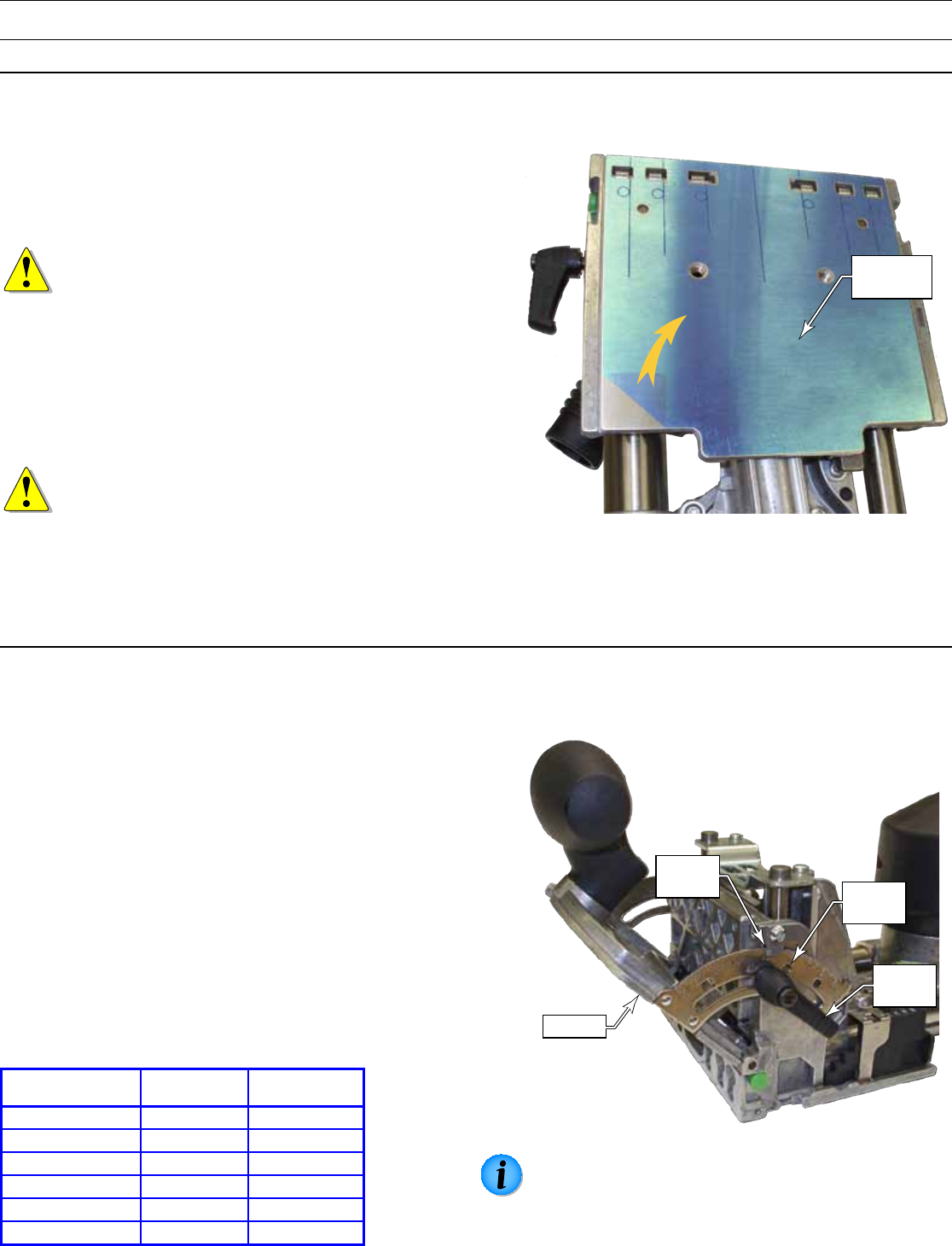
Supplemental Owner’s Manual 7
Setup
Setting Up a New Domino Joiner
Congratulations on your purchase of a new Festool Domino
Tenon Joiner. The Domino joiner is the nest portable loose
tenon joiner in the world. Before using your new Domino
joiner, make sure you fully read and understand all of
the precautions and safety information presented in this
manual.
WARNING! To reduce the risk of injury from contact
with a moving part, always unplug the joiner before
making any inspections or adjustments, or before
installing or removing any accessory!
1. With the joiner unplugged, inspect the mortising bit.
Make sure it is not bent, chipped, or otherwise damaged,
and make sure the bit is fully tightened on the spindle.
(Refer to “Changing the Mortising Bit” on page 9 for
more information).
CAUTION! Check regularly whether the mortising
bit is in good condition. Mortising bits that are bent
or damaged can break, and should no longer be
used.
2. Peel off the protective lm from the bottom of the joiner
baseplate.
3. Set up the joiner for the appropriate type of operation as
described throughout the remainder of this section.
4. Make sure that the fence height and angle locking levers
are properly tightened.
Protective
Film
5. Install the power cord into the Plug-It receptacle on the
joiner (refer to page 10 for more information).
6. Before you use the joiner, make sure to read the
”Overview, General Notes, and Tips” on page 10.
Setting the Fence Angle
Some joints require the fence to be set to an angle from the
mortising bit. The most common application is for making a
mitered joint (see page 16).
1. Unplug the joiner for safety.
2. Loosen the fence angle locking lever by rotating it coun-
terclockwise about ¼-turn.
3. Rotate the fence face to the desired angle, and tighten
the locking lever.
Notes:
► The fence has detent stops at 22½, 45, 67½, and 90
degrees.
► Use the gauge pointer for setting the fence to angles other
than the ones listed above.
► For greater stability, the locking lever clamps down on
both right and left sides of the fence.
The table below provides some common miter angles for
easy reference.
Number of
Equal Sides
Mitersaw
Angle
Domino
Angle
3 – Triangle 60 30
4 – Square 45 45
5 – Pentagon 36 54
6 – Hexagon 30 60
7 – Heptagon 25.7 64.3
8 – Octagon 22.5 67.5
Locking
Lever
Gauge
Pointer
Detent
Stops
Fence
Hint: If the position of the locking lever interferes
with your operation, you can rotate the lever after it
has been tightened by slightly pulling the lever out
and rotating it to a different position.
ew Text



